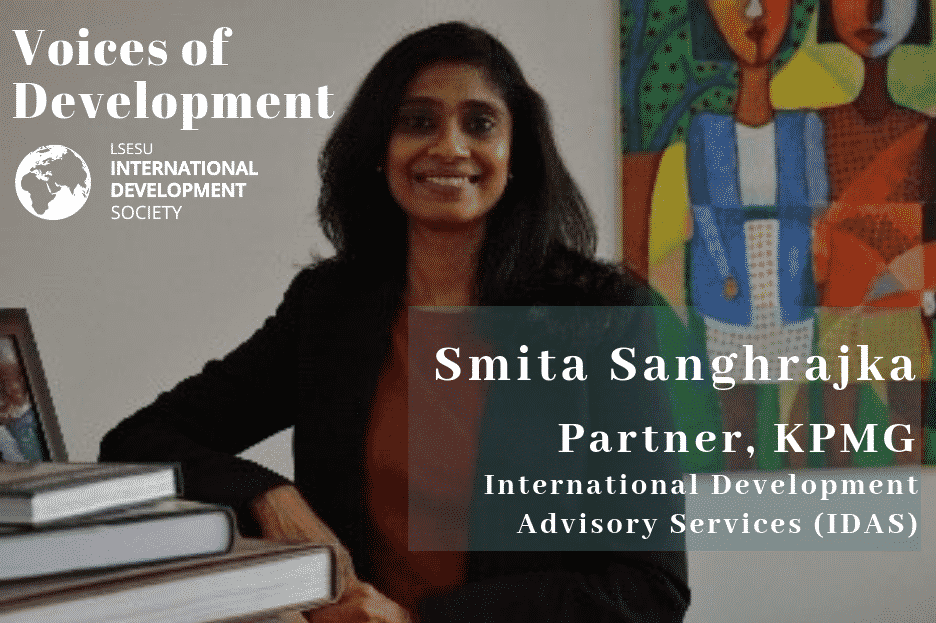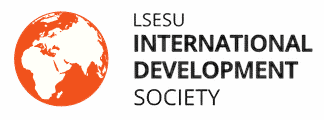Smita Sanghrajka, Partner in the KPMG IDAS Africa practice

How would you describe your experience at KPMG?
I have been with KPMG in East Africa for several years and had the privilege of being part of one of the first teams that began doing international development work in the region at KPMG. I joined KPMG in a junior position and eventually became Partner. Through my experience at KPMG, I have been able to grow and learn continuously and I am now in a position to grow and develop others which is very fulfilling. When I first joined KPMG, it was a small office in Nairobi with a small team. We now have four offices in the region (Kenya, Uganda, Tanzania, Rwanda) with over 1,000 staff. It has been exciting to see and experience these changes and growth as well as be able to work in different sectors and service areas. It is important to take initiative, be proactive and be open to different challenges which I have found has enriched my experience and opened up opportunities.
What inspires you to work in international development?
My inspiration for working in development has probably changed over time. Development initiatives usually take time and are interconnected. They may address basic needs such as health and education but also help in developing economies, creating jobs and reducing inequalities. Not only am I inspired to see how development programmes make a difference to the lives of the poor and vulnerable, but there are development issues facing us globally such as climate change. Being involved in initiatives to address these is very inspiring knowing that it will have an impact on a wider scale. For example, I have been involved as a fund manager in a flood resilience programme which ran a competition for innovative solutions to withstand the shocks and stresses of flooding in South and South East Asia. One of the initiatives selected was building floating houses in Bangladesh to enhance the resilience of households and communities before, after and during floods! Being exposed to such innovative solutions that may have a transformational impact is very inspirational.
How did you make the transition from accountancy and finance into International Development?
After graduating from LSE, I qualified as a Chartered Accountant and worked in finance for a year in the steel industry before moving to Kenya. I began working in management consultancy at KPMGin Kenya. The skills I developed in private sector became very relevant to the work we began to do in Development at KPMG in East Africa where we started to experience a greater demand for private sector practices in the Development sector, especially to build organisational and institutional capacity. As programmes became large, a need for fund managers or management agents grew, particularly to manage the fiduciary risk of the funds in development programmes. Managing fiduciary risk means ensuring the funds are accounted for properly and used for the purposes intended to ultimately make an impact in the programme’s focus area such as climate change, health, agribusiness, financial inclusion etc.
Can you talk about a project you’re currently undertaking, or a project you’ve done in the past? What was it, how did it come about, what did you achieve etc.
I have worked in programmes in a range of sectors which include health, resilience, agribusiness, governance and financial inclusion. One of the large programmes that I am currently involved in is MasterCard Foundation’s Funds for Rural Prosperity (FRP). FRP is a US$50 million challenge fund being implemented over seven years to extend financial services to people living in rural sub-Saharan Africa, with a focus on small holder farmers. KPMG is the fund manager of this programme. FRP’s aim is to improve 1 million lives with better financial access. This will help contribute to alleviating poverty. FRP came about as people making a living in agriculture make up two thirds of Africa’s workforce and mainly live in poor rural areas with limited access to finance. The challenge fund runs competitions to select innovative solutions that expand and deepen financial inclusion for the poor in rural areas in Africa. The fund is just over halfway and results from the participating projects are showing that the 1 million target may already have been reached which is a key achievement. The fund is also making an impact in creating jobs, improving financial literacy and reaching customers that would not normally have access to finance.
What was your biggest/most memorable achievement in your current role?
There have been so many. One of the most memorable was being instrumental in KPMG being selected to manage the Capacity Building Trust Fund in South Sudan. At the time, the Comprehensive Peace Agreement had just been signed in 2005 to end the civil war and this Fund was set up to help form the Government of South Sudan and support recovery. Being involved in such an important nation building initiative in a post conflict context was a very memorable experience.
How do you think you, as well as your team at KPMG, have made a difference to the field of International development?
KPMG IDAS in East Africa has made a difference in development through its fund management work which it began over twenty years ago. For example, over the years it has been involved in programmes that: support agricultural transformation; facilitate adaptation to climate change and innovation in renewable energy access; build countries’ resilience to climate change, shocks and stresses; and strengthen national capacities to deliver health services. These are just some of the areas where KPMG has been involved in making a difference. The following link provides useful information and detail on the work done and the difference it has made in the range of sectors we work in: IDAS information.
Smita Sanghrajka is a Partner in KPMG’s International Development Advisory Services (IDAS) in East Africa with over twenty years’ international development experience. As Engagement Partner, Smita has been leading various fund management programmes with Regional, Africa and Global reach in a range of sectors such as Resilience, Financial Inclusion and Agribusiness. Not only has she spearheaded various service delivery performance initiatives in IDAS, she has provided quality assurance in large programmes such as Global Resilience Partnership and Funds for Rural Prosperity. In addition, she has oversight of Compete, Check and Manage services in IDAS.
Smita has worked with various local and international non-governmental agencies as well as private foundations, public sector players and donor agencies such as DFID, MasterCard Foundation, SIDA, USAID, Z Zurich Foundation. She has experience in grant and fund management, programme design and management, financial management and sustainability, performance improvement, organisational development and capacity building.
As a testament to her tenacity and determination, Smita has conquered the tallest freestanding mountain in the world and Africa’s highest point– Mount Kilimanjaro. She brings this same energy to the workplace with a solution-oriented approach. Although her development career began with the firm, she diversified her path as an independent consultant working with a range of entities in various countries such as Guyana and Bangladesh, before returning to KPMG.
Over twenty years’ of development experience contributing to transformation and change, particularly in East Africa, has only driven her passion for seeing impact at community level further. She has been involved in various education and health initiatives. Currently, Smita is a Board member of Dignitas Project. Dignitas Project operates in informal settlements around Nairobi to empower teachers, students and communities to transform schools in Kenya.
She is a graduate of the London School of Economics and a UK qualified chartered accountant.
